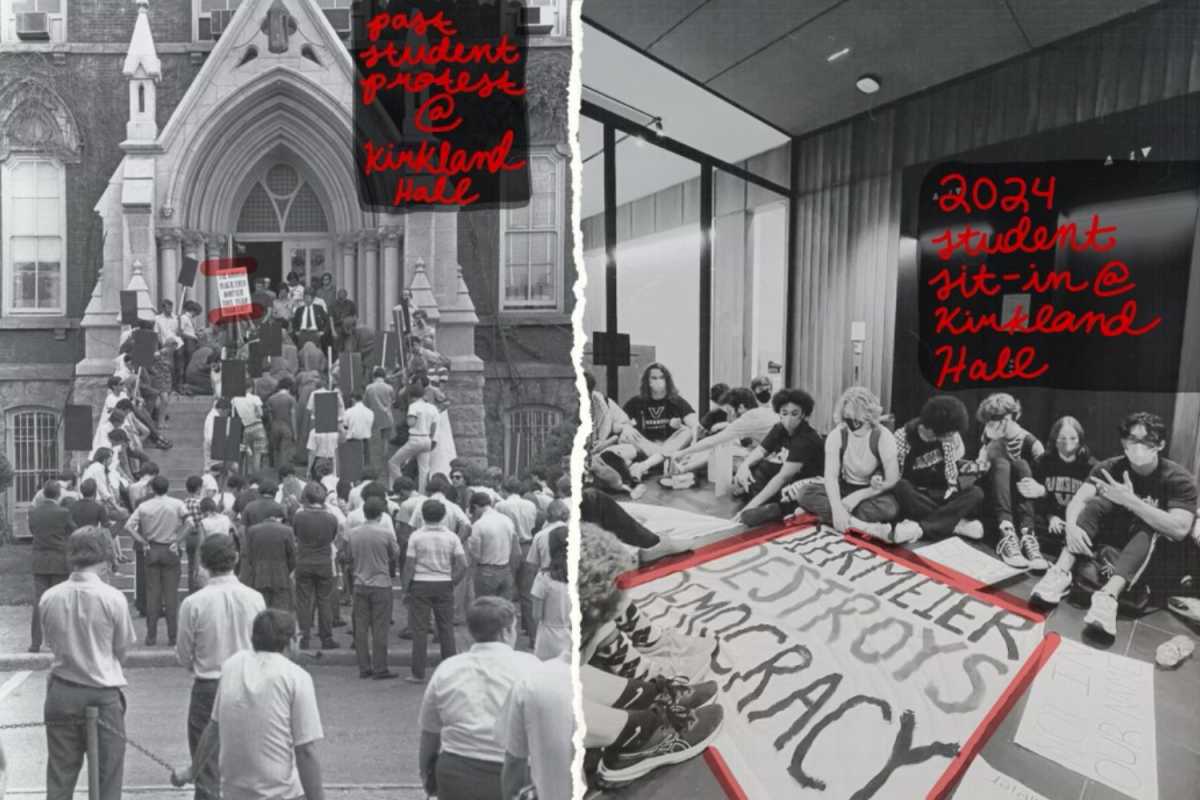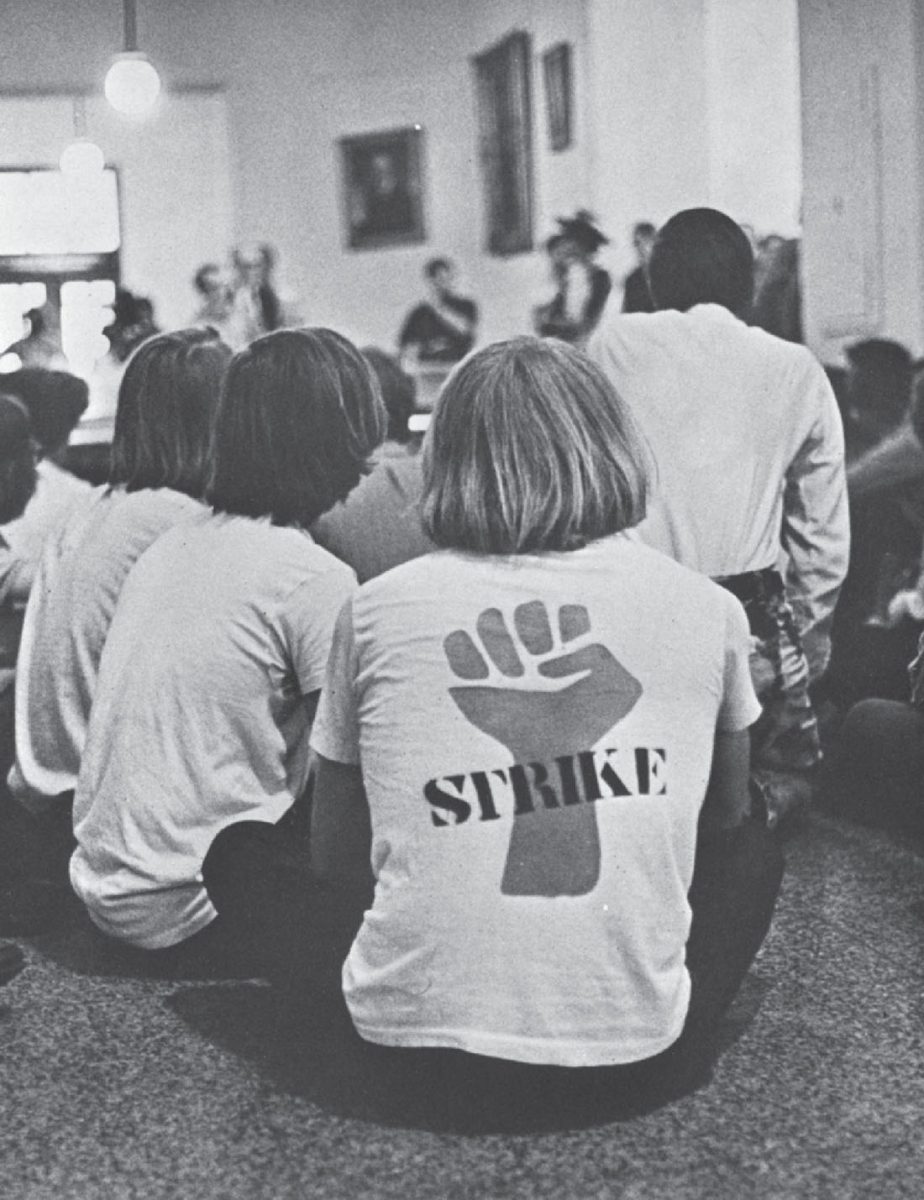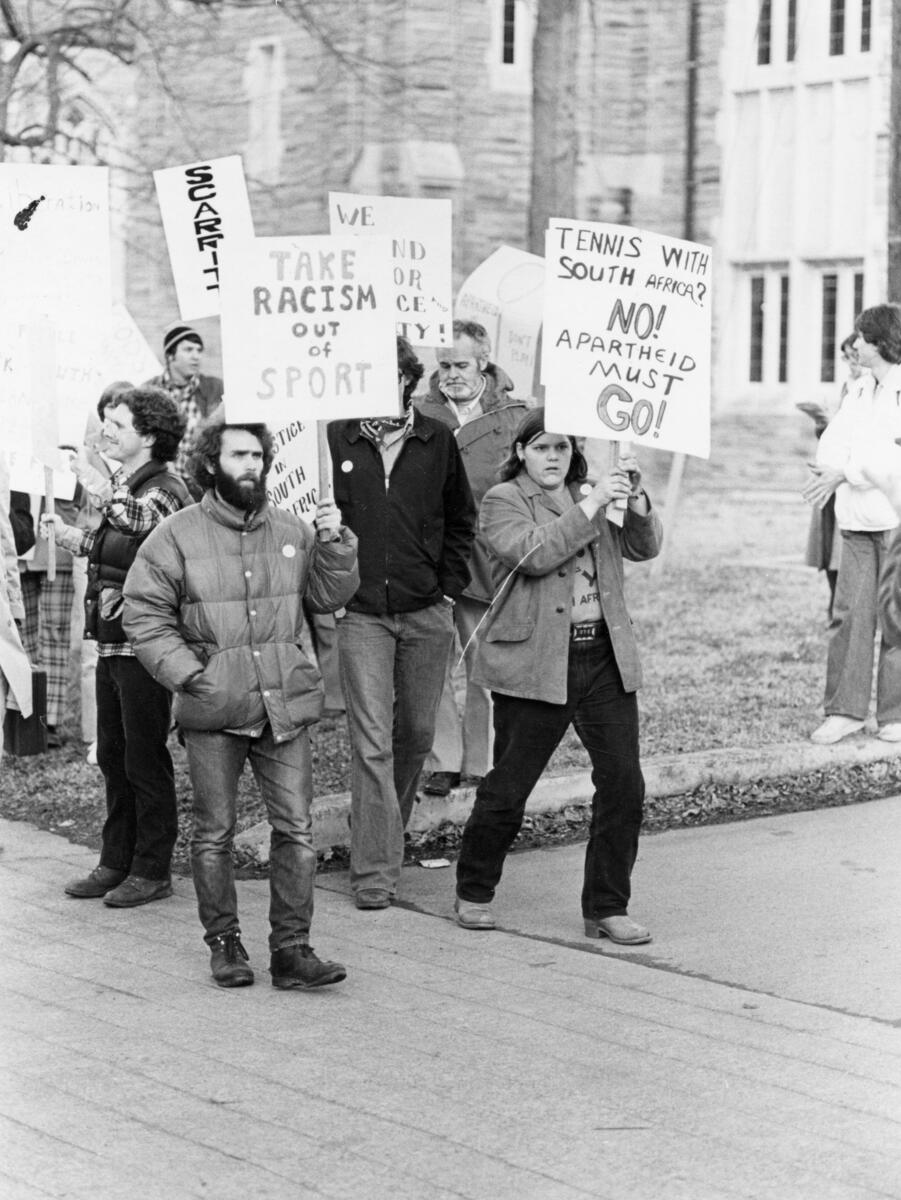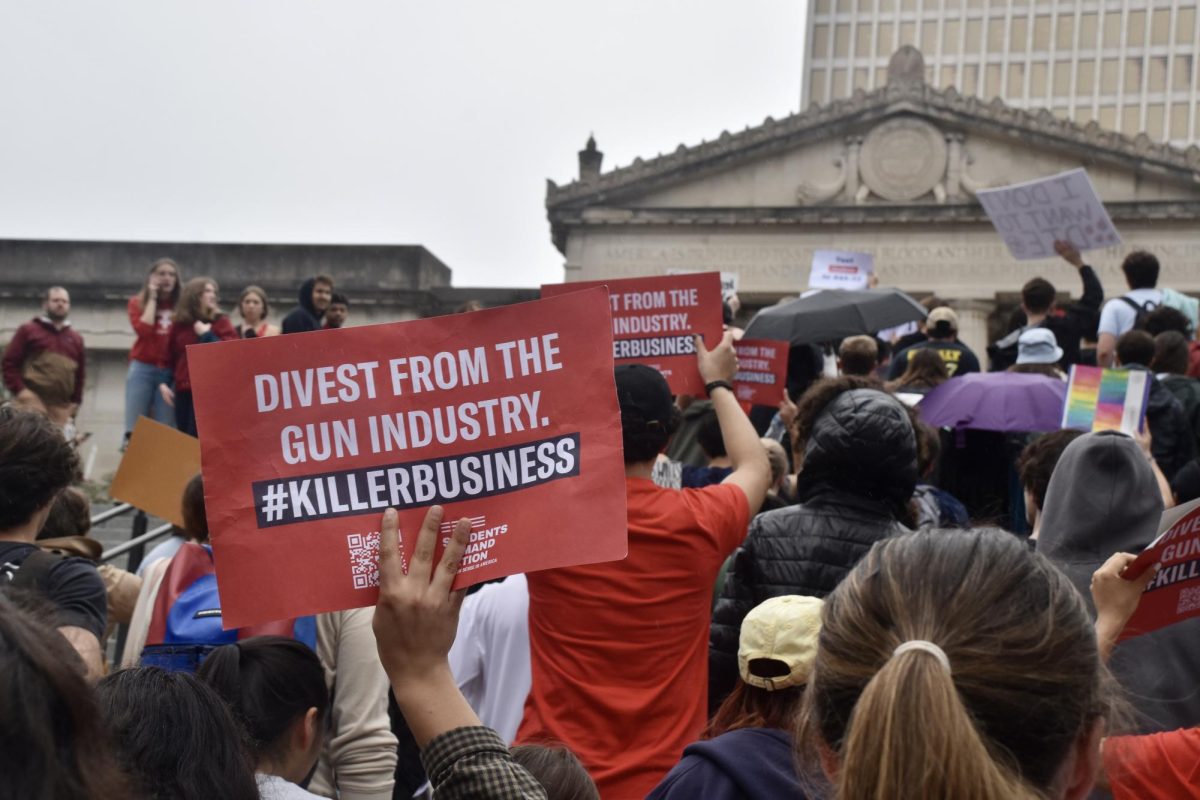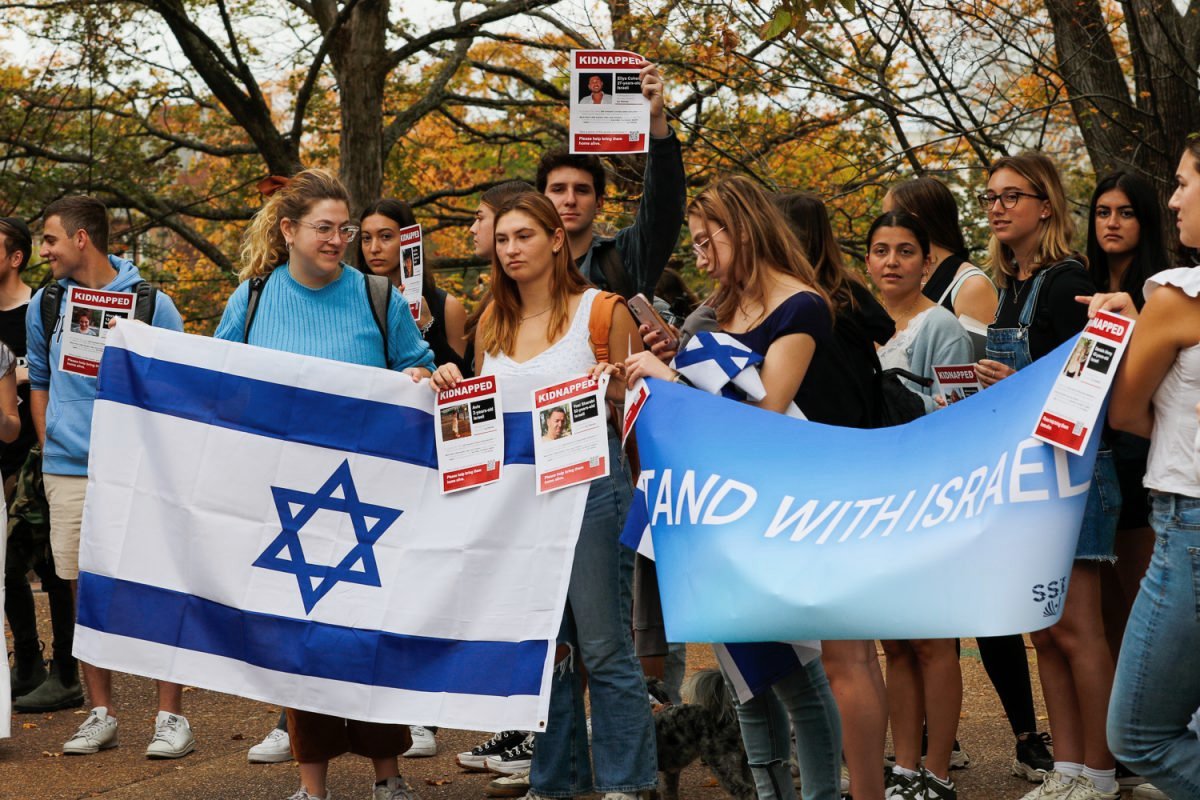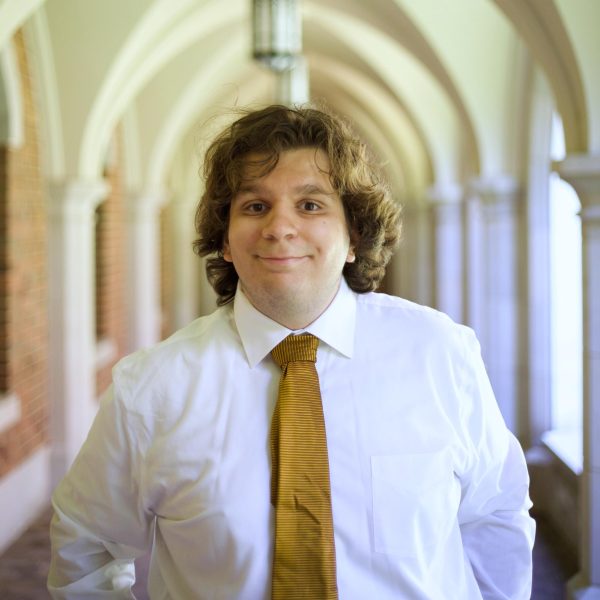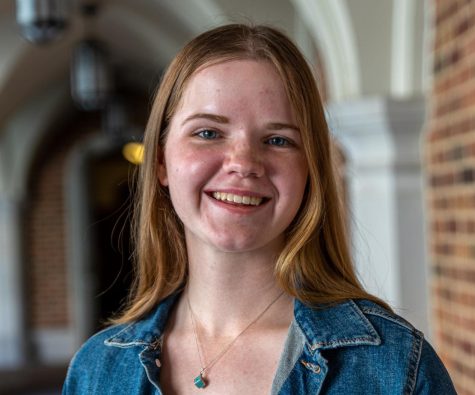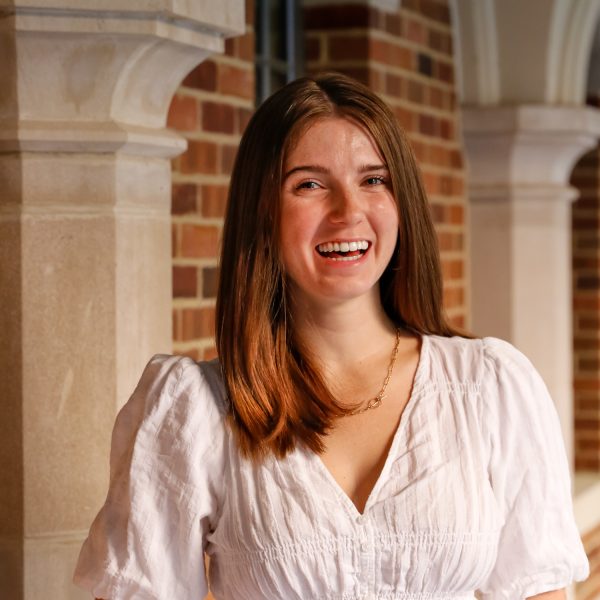In an era where campus activism makes headlines, we often forget to consider the history that came before it. With Nashville being a hub of southern leadership, Vanderbilt has seen its fair share of campus activism, even if it is sometimes challenged.
Vietnam War Protests of 1970
Following the deaths of four students at Kent State University, Vanderbilt students staged a sit-in on May 11, 1970, urging then-Chancellor Heard to resign from an appointed position by President Richard Nixon. As reported in the Vanderbilt Alumnus’ May-June 1970 issue, the protesters maintained civility, using the sit-in within Kirkland Hall to support a petition calling for the aforementioned resignation of the chancellor’s federal position.
The protest continued on May 14 when figures costumed as the Grim Reaper appeared at the Spring Naval ROTC review on Neely Lawn — now known as Alumni Lawn. The figures were joined by approximately 50 to 100 protesters as they walked from the West End Avenue side of Neely Lawn with a coffin marked as “ROTC coffin” to Kirkland Hall where a prayer for the dead was held on the exterior stairs.
South African Apartheid and Nat Turner Day
As some claim that Palestine is under the effect of apartheid, Vanderbilt University’s “principled neutrality” seems to ring similar to the past. In 1978, Vanderbilt University hosted the Davis Cup tennis matches, in which the then-racially segregated South Africa was scheduled to participate. This led to outrage among activists who saw it as supporting the segregationist actions of the nation, resulting in hours-long picket marches in front of Kirkland Hall. In response, Vanderbilt’s administration claimed they needed to maintain their principle of having the campus act as an “open forum” for all.
In an opinion article published by former Hustler staff writer Max Schulman, Schulman describes the 1980 counter-protest as an “Old South” celebration held by Vanderbilt’s chapter of Kappa Alpha Order. Some Black protesters reportedly dressed up in rags with chains while others marched across campus, highlighting a varied approach in their protests. In response, Vanderbilt took down the Nat Turner Day demonstration while allowing the Old South celebration to continue.
Black Lives Matter in response to the death of George Floyd
When the footage of George Floyd’s fatal encounter with Minnesota police officers went viral in June 2020, it sparked outrage about the nature of police brutality in the United States. The nature of the pandemic created further challenging times for activism, with precautions of social distancing clashing with in-person protest. This resulted in digital activism becoming prevalent, leading to the use of #BlackoutTuesday as a form of unity behind the cause of the Black Lives Matter movement. Donation pages were also created for nonprofits, a strategy used to raise funds to support pro-Palestinian protesters in recent months. Many of these online campaigns were supported by Vanderbilt student groups alongside Vanderbilt Student Government, providing “antiracist allyship starter packs.”
A significant incident in the Black Lives Matter movement in Nashville was a June 4 march that included students from Vanderbilt, Belmont and other universities across Nashville. The march began at Bicentennial Park and ended at the Tennessee State Capitol.
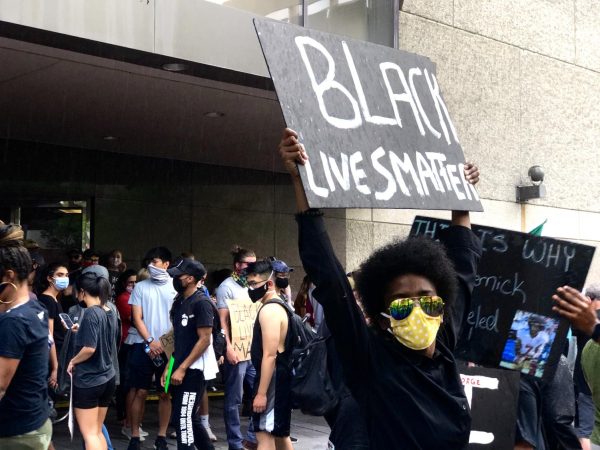
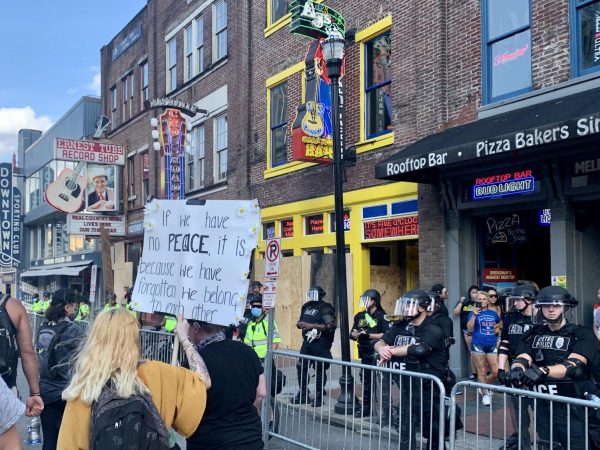
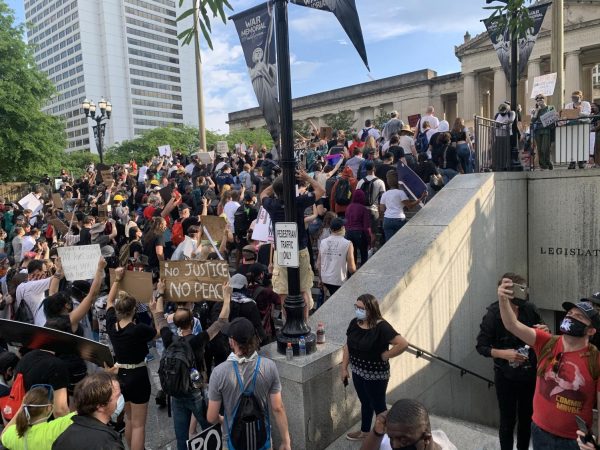
Fossil Fuels Divestment
Dores Divest — not to be confused with the Boycott, Divest and Sanction Coalition — provided a forefront of environmental activism in exposing alleged ties connecting Vanderbilt Chancellor Daniel Diermeier to the fossil fuel industry. An intriguing demonstration conducted by the group occurred early in the 2022-23 school year, in which they protested Diermeier’s actions midway through Diermeier’s Founders Walk speech and provided pamphlets to first-year students as they walked. In the wake of this event, multiple students were referred to Student Accountability.
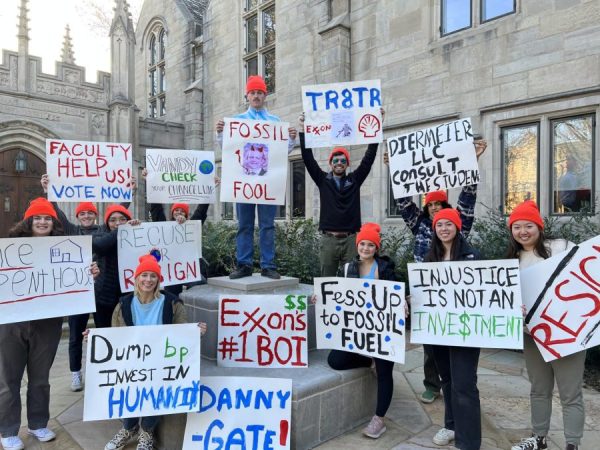
Response to the Covenant School Shooting
When news broke of the mass shooting at The Covenant School, it does not suffice to say that it was a moment of shock for many in Nashville, with the issue of gun violence directly striking their hometown. In response, the Vanderbilt administration, student groups and politicians alike expressed their sorrows for the event; many Vanderbilt students took to the streets to protest for stricter gun reform. With Diermeier actively supporting Vanderbilt’s participation in the community protest, an estimated 1,000 Vanderbilt students marched alongside others toward the Tennessee State Capitol. Chanting statements including “Hey hey, ho ho, the NRA has got to go!”, the city-wide walkout organized by the advocacy groups Students Demand Action and March For Our Lives was deemed successful in capturing public attention. Public walkouts continued to occur, such as on Oct. 7, 2023 when Vanderbilt’s chapter of Students Demand Action marched in front of gun manufacturer Smith & Wesson’s new headquarters in Maryville, Tennessee. On the first anniversary of the Covenant School shooting, Voices for a Safer Tennessee helped organize Linking Arms for Change, forming a human chain from Vanderbilt University to the Tennessee State Capitol. Some children in the protest chanted “We don’t want no guns, we want safety” as cars honked in solidarity with the demonstrators’ efforts, garnering positive public support and showing unity within the community.
Boycott, Divest and Sanction Against Israel
While advocacy groups such as Dores in Solidarity for Palestine (DSP) have demonstrated for years, advocacy for both sides of the conflict started in light of Operation Al-Aqsa Flood by the Hamas military on Oct. 7, 2023. The terror of the attack alongside the response by the Israeli state led to protests by supporters of both sides of the conflict promptly, including an Oct. 29 rally outside Rand Hall by pro-Palestinian students. At the same time, a student-led rally supporting Israel in the conflict developed on Fleming Yard on the opposite side of Rand. Shortly after, a pro-Palestinian demonstration occurred at Centennial Park on Nov. 11, with a march within Rand Hall held the next week on Nov. 21. The march was organized by the group Jews for Ceasefire amid an exhibit by Students for Justice in Palestine (SJP) nearby on Rand Lawn. Banners calling for a ceasefire in Gaza were also placed by an unknown group on the pedestrian bridge connecting Peabody Campus to the main campus of Vanderbilt, with the banners being removed for violating the university’s policies of posted signage on campus.
In the spring, SJP developed a petition calling for the VSG to boycott targeted companies that allegedly support Israeli interests in the conflict. The petition amassed over 600 signatures before being struck down by Vanderbilt University to maintain a “principled neutrality” in the interests of allegedly aligning with state-mandated laws towards the university. This prompted the erection of an “Apartheid Wall” alongside Rand Hall, despite Vanderbilt University claiming there would be construction on the site.
A pivotal moment in the history of Vanderbilt University was at 9 a.m. CDT on March 26, when 27 undergraduate protesters rushed into Kirkland Hall. They called on Vanderbilt administration to allow students to vote on the aforementioned petition struck down earlier this year. The resulting protest lasted until 6:34 a.m. CDT the following morning, in which the protesters were escorted outside by VUPD officers. The aftermath of this sit-in is considered pivotal due to the arrest of journalist Eli Motycka amid the chaos, drawing statewide attention to the sit-in. The effect of the Kirkland sit-in has developed dissent among Vanderbilt students and faculty, placing pressure on the stance of “principled neutrality” within the university.
As a myriad of conflicts arise, advocacy usually follows. Whether it be staging sit-ins or marching, calls for social change will always continue, with institutions such as Vanderbilt remaining at the forefront.

